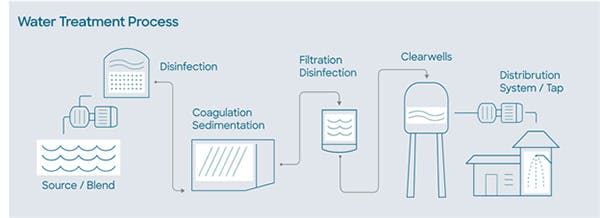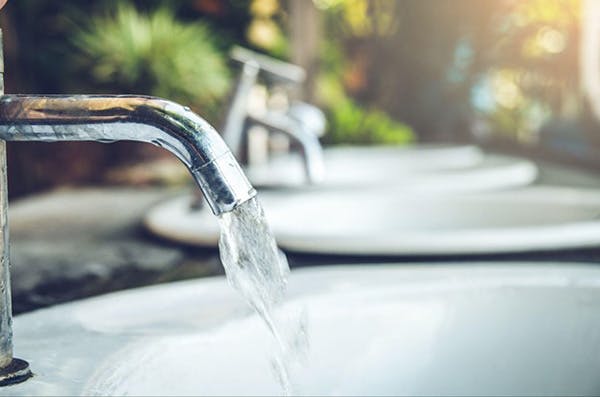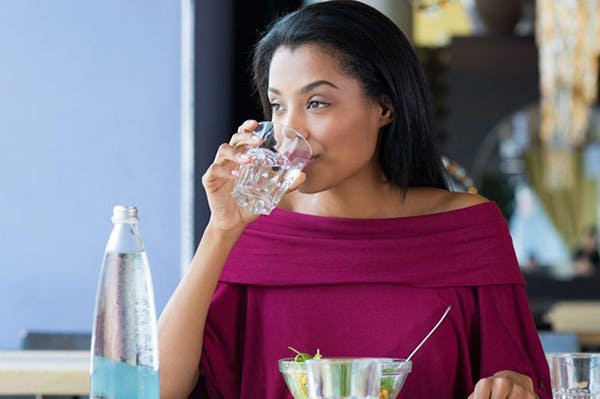October 2022
How Good Is Dallas Water Quality? Your Complete Guide
In-home expert installation available
Enter your zip code to see if we're in your area
No matter where you live, it’s important to know how good the water quality is in your area. If you’re a Texan — and you live in Dallas — then you’ll want to know how high (or low) Dallas water quality is.
We understand how important quality drinking water is, not only for your health, but for the health of your family as well. So let’s take a closer look at Dallas water quality and give you a better idea of how safe — or unsafe — Dallas drinking water is, and what you can do about it.
Where Does Dallas Get Its Drinking Water From?
Before we dive into Dallas water quality, we first need to figure out where Dallas drinking water comes from. So let’s go to the source (or in Dallas’ case, sources).
The city of Dallas gets its drinking water from six different lakes: Fork Lake, Grapevine Lake, Lewisville Lake, Ray Hubbard Lake, Ray Roberts Lake, and Tawakoni Lake. The city of Dallas plans to add water from Lake Palestine to the city’s water system by 2027.
Is It Safe to Drink Tap Water in Dallas?
The answer to this question will depend on how you define the word “safe”. The drinking water supplied by Dallas Water Utilities (DWU) meets or exceeds the health guidelines set forth by the U.S. Environmental Protection Agency (EPA) and the State of Texas’ own regulations.
But meeting these health guidelines doesn’t mean that Dallas’ public water system is supplying crystal-clear water completely free of contaminants. In fact, if you’re curious you can navigate to the Texas Commission on Environmental Quality’s (TCEQ) Texas Drinking Water Watch.
While there, you can look up a detailed fact sheet on Dallas Water Utilities. This supplies water quality information and the testing history of contaminants and byproducts of disinfection present in Dallas tap water.
It’s worth noting that Dallas Water Utilities (DWU) has only had three water quality violations in the past 15 years, which is excellent for a drinking water quality report. When it comes to the public health of municipal water supplies, Dallas Water Utilities has a good record.
But this doesn’t necessarily mean that Dallas water quality is perfect. As we’ll see, Dallas tap water can still carry within it contaminants, heavy metals, and even potentially harmful byproducts of disinfection processes that take place in Dallas-area water treatment plants.

How Is Dallas Water Treated?
The city of Dallas has three primary water treatment plants: East Side, Elm Fork, and Bachman. In addition to these three water treatment plants, the city of Dallas has two wastewater treatment plants, Central and Southside, which treat wastewater (also known as sewage) that’s already been used by homes or businesses in the Dallas area.
The Dallas Water Utility treats surface water in a variety of ways before it pipes this water to residents in the city. DWU treats water with chemicals to help eliminate contaminants, and uses chloramine (made by combining chlorine and ammonia) or ozone for disinfection. Chloramines such as this remain in your drinking water.
To prevent corrosion in pipes and remove sediment and solids from water, DWU treats water with iron sulfate and lime. To reduce foul odors and bad taste in Dallas tap water, DWU filters the water through activated carbon.
Finally, DWU adds fluoride to the public water system to try and prevent tooth decay.
Is Dallas Tap Water Clean?
We know that Dallas sources its water from six surrounding lakes, and then treats this water with chemicals and filtration processes at water treatment plants.
Once this water leaves these treatment plants, it travels through miles and miles of pipes before emerging out of your home tap. When you fill up a glass with tap water in your Dallas home, that water is by no means pristine.
Why? Well, at each step in your Dallas tap water’s life cycle, it has been exposed to contaminants and byproducts of treatment processes. Dallas’ surface water sources are subject to any number of contaminants found in nature, in addition to discharges, pesticides, and nitrate runoff.
Then, water treatment plants add a variety of chemicals to the water to try and eliminate these contaminants. Many of these chemicals are still present in this water when it leaves the water treatment plants, and their byproducts may still be present in the tap water you use at home.
Finally, the municipal pipes that your tap water traverses between a water treatment plant and your home can also be a source of contamination. Old pipes can even be made from lead, which can produce lead contamination in drinking water through a process called leaching.
It’s worth noting that none of these problems are unique to the city of Dallas. Across the country, cities just like Dallas meet state and federal guidelines for safe drinking water, but still provide tap water that falls short of the high quality standards many may have for sourcing the best water for themselves and their families.
How Can I Drink the Best Water in Dallas?
At this point, you may be asking yourself if any water is safe to drink. Fortunately, the answer is a resounding yes! There are many ways to upgrade your Dallas water quality and safeguard your health and the health of your family in the process.
Let’s take a look at two ways you can start drinking the best water in Dallas:
1. Drink Bottled Water
Bottled water goes through its own rigorous treatment, filtration, and disinfection processes, and the end product is water that may be safer to drink than your average glass of tap water. Bottled water can be convenient, too: You can find it at any gas station or grocery store, and stock up for home use.
But bottled water has its own drawbacks. For starters, bottled water is expensive. Relying on bottled water to meet all of your drinking water needs can cost you more than $2,000 each year, per person in your household!
Bottled water is also harmful to the environment. Nearly all bottled water comes in plastic bottles, which themselves are products of the oil industry, and won’t biodegrade easily. Bottling, packaging, and transporting bottled water also produces carbon emissions that contribute to climate change.
Last (and perhaps least) of bottled water’s drawbacks is its weight. Water is heavy, and buying and transporting all of your home’s drinking water in bottled water form will be a physically strenuous process.
2. Filter Your Water at Home
The other option for drinking the best water possible in the comfort of your own home is to filter tap water yourself.
There are many ways you can do this, and we’ve written extensive guides on the process of home water filtration. Some people may opt for water pitcher filters, while others may try out filters that attach directly to the faucet of your sink.
But there are two clear standouts in the world of home filtration: under counter filtration systems and whole home filtration systems. Let’s take a quick look at each of these options.
Under Counter Water Filtration Systems
Under counter systems are installed exactly where you’d expect: under your counter. They attach to the water line under your faucet and filter contaminants, heavy metals, contaminants, odors, and foul taste out of the water before it ever leaves your faucet.
One of the advantages of an under counter filtration system is that you can likely install one on your own. They also require a minimal amount of hardware to install, making them an ideal solution for people who are renting their home or apartment.
Whole Home Water Filtration Systems
But for those Texans who are really serious about their Dallas water quality, there’s no better solution than a whole home water filtration system.
Whole home water filtration systems work by filtering every drop of water that comes into your house, before you use it. This means that the water you brush your teeth with, the water you shower with, the water you wash your clothes and dishes with, and (of course) the water you drink is all rigorously filtered.
Whole home water filtration systems require a bit more hardware and know-how to install than under counter systems. You may need to secure professional help for installation, but once one of these systems is in your home, all you’ll have to do is replace your filters to keep enjoying the best water available for as long as you’re in your home.
Where Can I Buy a Home Filtration System to Improve My Dallas Water Quality?
Now that we’ve learned why typical Dallas water quality may not meet your family’s needs, and how home filtration systems can safeguard your family’s health, it’s time to look at your options for under counter and whole home water filtration systems.
HomeWater is an industry leader in this space, and provides top-notch products backed by excellent customer service. HomeWater offers a variety of different home filtration systems, including under counter systems as well as whole home systems.
While you’re at it, if you’re interested in learning more about the fascinating world of water quality, check out the HomeWater blog. There you’ll find interesting and informative articles on all topics water related.
Brought to you by homewater.com
All images licensed from Adobe Stock.


